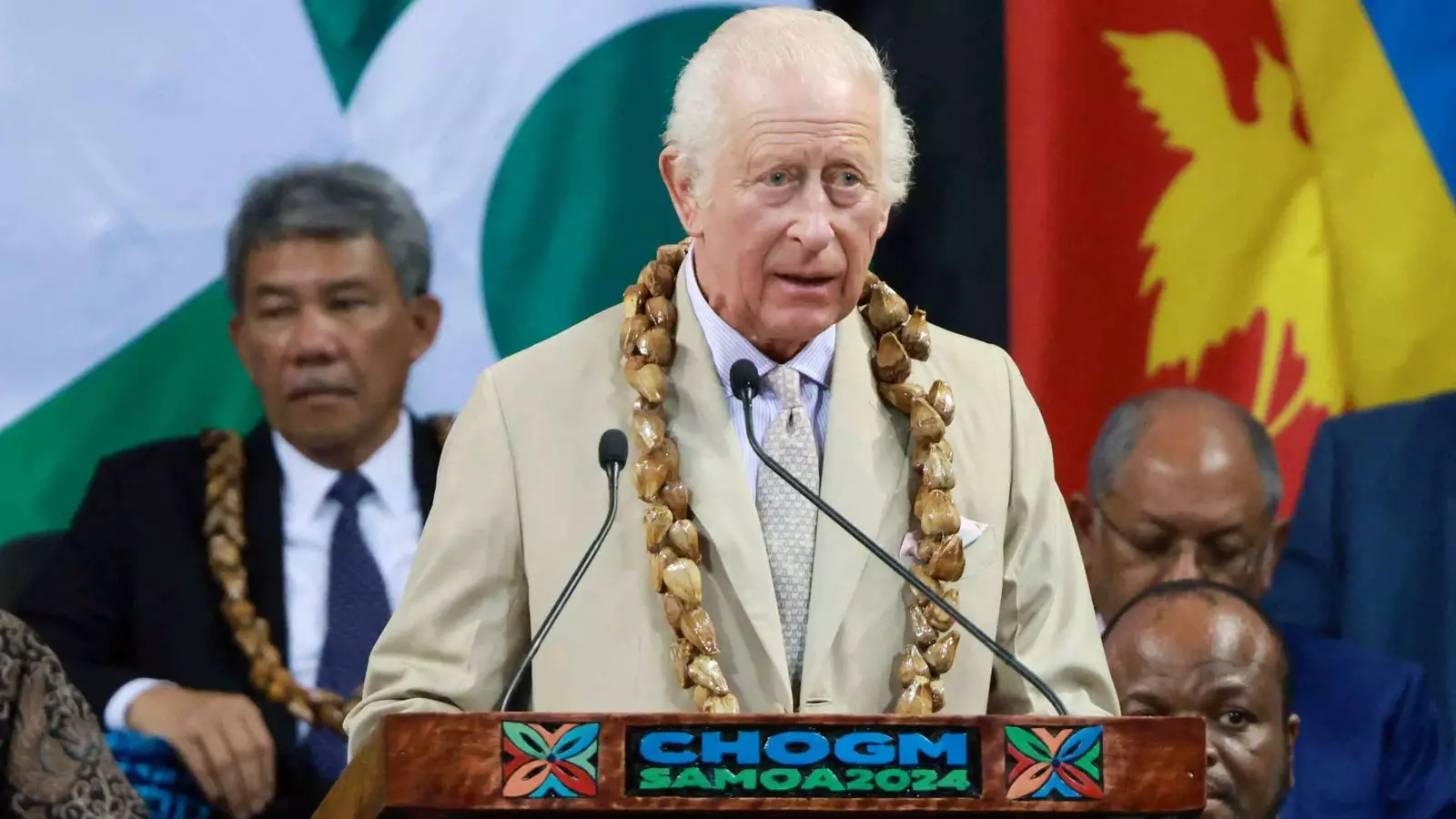The recent address by the King during his inaugural meeting with Commonwealth leaders exemplifies a crucial juncture in historical dialogues regarding colonial legacies. In Samoa, where the theme revolved around envisioning a “common future,” the King’s speech could not overshadow the simmering tensions inhibiting unity among member states. The legacy of the slave trade looms large, casting a long shadow over discussions and posing an existential question for a collective often referred to as a “family of nations.”
In his carefully articulated remarks, the King acknowledged the painful history that resonates with many Commonwealth nations. His assertion that it is essential to understand the past to navigate the future hints at a sincere attempt to foster reconciliation between nations. However, he notably refrained from explicitly addressing the contentious topics of “slavery” and “reparations.” This avoidance may strike a discordant note with nations in the Caribbean and Africa, where calls for formal apologies and reparative justice continue to gain momentum. Activists like Eric Phillips from Caricom have voiced their discontent, hinting that diplomacy without action appears futile.
The reluctance of prominent leaders, including Sir Kier Starmer, to openly support reparations illuminates the fractures within the Commonwealth. Phillips ominously declared, “No reparations, no trade,” suggesting that historical grievances are transforming into modern stakes demanding redress. Such statements emphasize that the relevance of the Commonwealth may wane if leaders continue to sidestep essential moral responsibilities. The King’s royal position, which traditionally places him above political disputes, further complicates his ability to address these critical questions directly.
Caught between public sentiment and royal tradition, the King’s responses may fall short for many who seek more than an acknowledgment of past wrongs. With Buckingham Palace hinting at an inability to apologize without governmental sanction, a standstill persists in a dialogue desperately needing to progress. The historical connection between the monarchy and slave trading poses significant challenges to gaining trust, as many perceive the royal family’s previous economic benefits from such trades as unresolved moral issues.
Finishing on a hopeful note, the King urged collective action towards a harmonious future. Yet, optimism might hardly replace the urgent need for tangible progress in addressing historical injustices. Building a cohesive Commonwealth requires confronting difficult questions and acting on them rather than sidestepping the core issues at hand. As the King navigates this complex terrain, the question remains: will the rhetoric translate into genuine healing and unity among member states, or will it be remembered merely as a missed historical opportunity? The Commonwealth’s future hinges on shared commitment to addressing these unresolved issues.

Leave a Reply